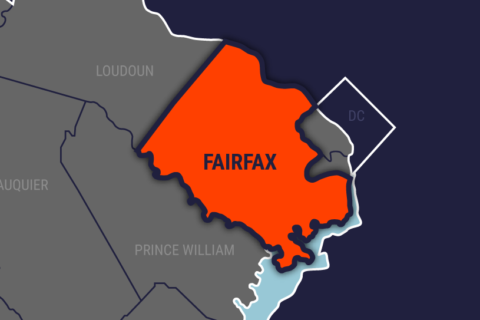MCLEAN, Va. — On Nov. 8, Fairfax County residents will be asked to vote on a proposed 4 percent meals tax — a tax that has been debated in the county for years.
The tax would be added to restaurant meals and drinks, as well as to ready-to-eat prepared foods and drinks bought at supermarkets and convenience stores.
Two Fairfax County supervisors spoke about it at a forum Monday night hosted by the Greater McLean Chamber of Commerce, which is not taking a position on the issue.
Supervisor John Foust is in favor of the tax, which he says will raise about $100 million.
“Seventy percent of the meals tax revenues, which is about $70 million, will be dedicated to the schools,” Foust said.
“The Board of Supervisors has made that commitment. The school board, on the other hand, has made the commitment that most of that $70 million will be used to raise teacher pay.”
Foust added that several other nearby jurisdictions already have a meals tax. Alexandria, Fairfax City and Falls Church each have 4 percent meals taxes. Vienna’s meals tax is 3 percent. Herndon’s is 2.5 percent. D.C.’s meals tax is 10 percent.
“Nobody wants to keep adding new taxes, but we do need additional revenue and the meals tax is so obviously the place we can turn to to get significant revenue without adversely impacting an industry, without adversely impacting our economy,” said Foust.
Supervisor Pat Herrity opposes the tax.
“This really isn’t a tax on restaurants. It’s a food tax. It’s something on your dinner table tonight. It’s the rotisserie chicken that you get at the grocery store; it’s the Starbucks coffee; it’s the 7-Eleven purchase of a soft drink. It’s 4 percent on top of the 6 percent sales tax. That’s a 10 percent tax on food,” Herrity said.
“It’ll hurt our small businesses and families that don’t have a choice. It’s bad for Fairfax County residents and businesses, and it’s also bad for the 40,000 people who work in that industry.”
Herrity said the county should focus instead on lowering spending.
The discussion became heated at times. At one point, as Foust spoke about the need to prevent teachers in Fairfax County from going to Loudoun County for higher pay, he saw Herrity smiling.
Foust said, “You think that’s funny?”
“No; I just think that …” Herrity started to answer but stopped.
“What do you think’s funny about that? I don’t think anything’s funny about this. This is really serious business,” said Foust.








